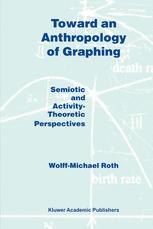

Most ebook files are in PDF format, so you can easily read them using various software such as Foxit Reader or directly on the Google Chrome browser.
Some ebook files are released by publishers in other formats such as .awz, .mobi, .epub, .fb2, etc. You may need to install specific software to read these formats on mobile/PC, such as Calibre.
Please read the tutorial at this link: https://ebookbell.com/faq
We offer FREE conversion to the popular formats you request; however, this may take some time. Therefore, right after payment, please email us, and we will try to provide the service as quickly as possible.
For some exceptional file formats or broken links (if any), please refrain from opening any disputes. Instead, email us first, and we will try to assist within a maximum of 6 hours.
EbookBell Team

0.0
0 reviewsDuring the summer of 1990, while taking my holidays to teach a university course of physics for elementary teachers, I also tutored one of the tenth-grade students at my school in physics, chemistry, and mathematics. In return for working with him for free, I had requested permission to audiotape our sessions; I wanted to use the transcripts as data sources for a chapter that I had been in vited to write. It so happened that I discovered and read Jean Lave's Cognition in Practice that very summer, which inspired me to read other books on mathe matics in everyday situations. Two years later, while conducting a study with my teacher colleague G. Michael Bowen on eighth-grade students' learning during an open-inquiry ecology unit, I discovered these students' tremendous data analysis skills that appeared to be a function of the deep familiarity with the objects and events that they had studied and mathematized earlier in the unit. I reported my findings in two articles, 'Mathematization of experience in a grade 8 open-inquiry environment: An introduction to the representational practices of science' and 'Where is the context in contextual word problems?: Mathematical practices and products in Grade 8 students' answers to story problems'. I Begin ning with that study, I developed a research agenda that focused on mathemati cal knowing in science and science-related professions. During the early 1990s, I was also interested in the notion of authentic practice as a metaphor for planning school science curriculum.